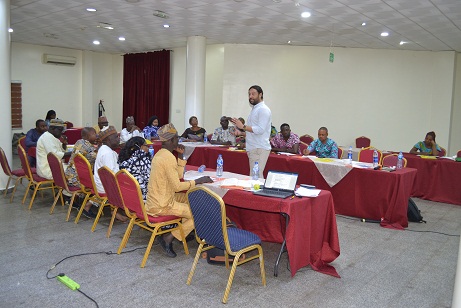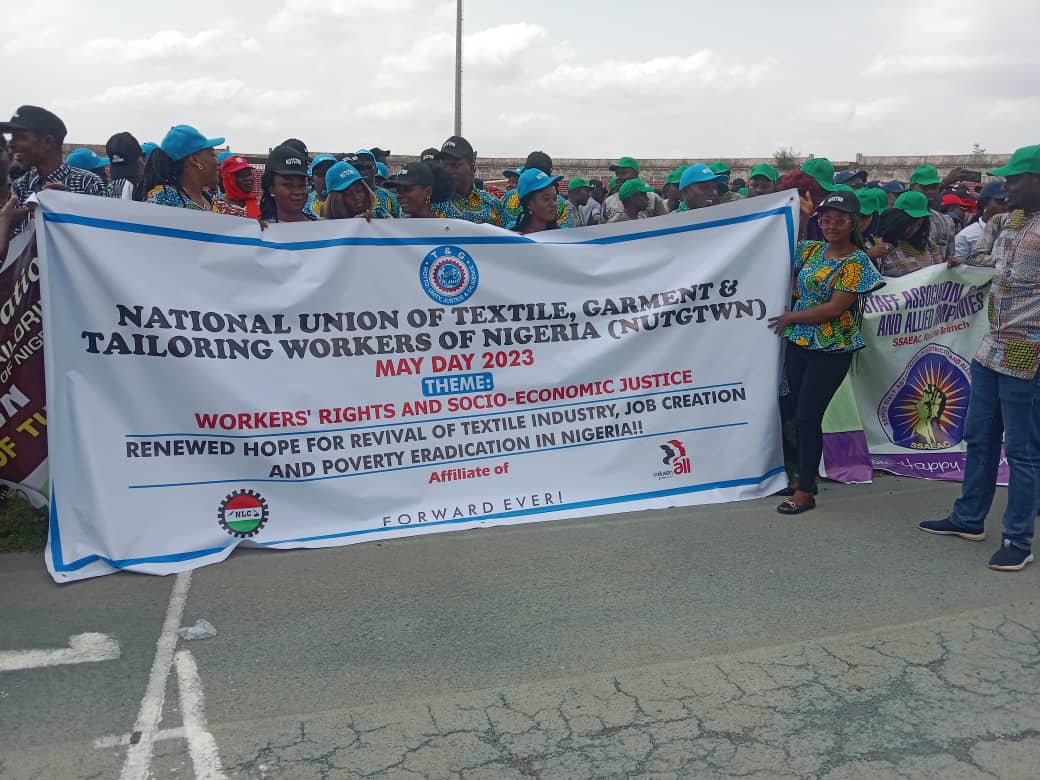
By Issa Aremu, mni | Publish Date: May 7 2018
Last Saturday marked the 200th anniversary of Marx’s birthday. Karl Marx was the German revolutionary political economist who espoused the theory of socialism and communism flowing from a time-tested critique of 19th century capitalism. He was born at Trier, Germany on the May 5, 1818. He died on 14 March 1883 in London. His seminal classical works on revolution, class struggle, socialism and communism include; Economic and Philosophical Manuscripts in Summer (1844), Theses on Feuerbach and The German Ideology (with Engels, who became his lifelong friend at this time), The Communist Manifesto published (1848), Value, Price and Profit given (1865), Capital (1867).
One essential idea of Karl Marx is revolution. Inspired by the overthrow of the French monarchy in February 1848 (French Revolution!) by the Paris Communards, Marx declares that “revolution is the motive force of history”, in which the oppressed alienated masses would inevitably overthrow their few oppressors. Devils are in the details of the preferred revolution. Marxists have argued whether the revolution should be led by the working class (proletarian revolution as in Bolshevik Russian revolution of 1917) or led by the peasants as in China. The Iranian revolution of 1979 further pointed to the spiritual dimension of transformation. What is however clear, is that it was Karl Marx, the 19th century revolutionary philosopher through historical and dialectical materialist analysis who showed scientifically that “Revolutions are the locomotives of history”.
Of course there have been scores of revolutions inspired by Marxism, from the Russian revolution led by V.I Lenin and J.V Stalin to the Chinese revolution led by Chairman Mao, from Vietnamese revolution led by Ho Chi Minh to the Cuban Revolution led by the legendary Fidel Castro. Even the Iranian Revolution which took spiritual dimension had its root in oppressive and exploitative social relations of the old monarchy. All liberations movements in Africa, from Ghana to Angola, Algeria to Namibia drew inspirations from Marxism. The series of Arab springs from Tunisia to Libya, Egypt to Yemen show that it’s not yet the end of history of revolutions. Just last month, massive street protests forced the Armenia’s longtime leader Serzh Sargsyan to resign. The late Nigerian Marxist political economist, Professor Claude Ake wrote about “Revolutionary Pressures in Africa” (1978). Somalian failed state, the endless wars of attrition in South Sudan, mass graves in DRC Congo and the bloody Boko Haram war in Nigeria’s North East point to the validity of Claude Ake that “ …the choice for Africa is not between capitalism and socialism after all, but between socialism and barbarism.”
Following the deafening collapse of Soviet communism and central planning in former Eastern Europe and Africa (Benin Republic, Ethiopia) in 1989, the American Francis Fakuyama was much in a hurry to proclaim the “End of History” (1992) declaring with outlandish verdict the triumph of global capitalism, the market and liberal democracy. The continuous transformation of socialist China with, dramatic lifting of millions out of poverty and creative mix-bag of state/market models of development shows that it is not yet the end of history with Marx and Marxism.
Indeed the deafening collapse of international capitalism in 2008 and desperate return to state interventions through nationalization of private losses and stimulus public spending further confirms that capitalism without state support would collapse on its greedy terms. Another essential feature of Marx’s idea is concentration of capital and wealth in the hands of few and increasing inequality between the rich and poor. While Adams Smith envisaged the wealth of Nations, Marx had argued that as capitalism matures, capital would be concentrated in the hands of the few monopolies.
Today the turnovers of few multinational corporations dwarf the GDPs of many nations. The international companies untamed do corrupt nations- states and even manipulate mindsets of citizens to electoral advantages as seen in the Face book/Cambridge Analytica information monopolies. Last year OXFAM released a damning report on Nigeria according to which, “Economic inequality in Nigeria has reached extreme levels, despite being the largest economy in Africa. The combined wealth of Nigeria’s five richest men – $29.9 billion – could end extreme poverty at a national level yet 5 million face hunger. More than 112 million people are living in poverty in Nigeria, yet the country’s richest man would have to spend $1 million a day for 42 years to exhaust his fortune. The amount of money that the richest Nigerian man can earn annually from his wealth is sufficient to lift 2 million people out of poverty for one year.”
Karl Mark envisioned a world “from each according to his abilities, to each according to his needs”, not his or her greed. Certainly he would not have imagined the viciousness of such a class struggle in Nigeria in which a Class has all such that other classes are obliterated altogether! Karl Marx wrote about primitive capital accumulation arising from plain robbery and slavery rather than exploitation of Labour surplus value in production. How would Marx describe today the OXFAM revelations according to which in Nigeria, between 1960 and 2005, about $20 trillion was stolen from the treasury by public office holders, the amount said to be larger than the GDP of United States in 2012 (about $18 trillion?)
Karl Marx: Not yet the end of history
Related Posts
12th Quadrennial National Delegates’ Conference Tuesday 24th – Thursday 26th March 2020
NOTICE / INVITATION This is to formally inform you that arrangement has been concluded for the union’s 12th Quadrennial Delegates’ Conference to hold from Tuesday 24th to Thursday 26th March…
New Year Message By National Union of Textile Garment and Tailoring Workers of Nigeria (NUTGTWN)
2020: FORWARD EVER WITH UNION BUILDING AND DEFENSE OF WORKERS’ RIGHTS GREETINGS We greet all our members in the industry and informal sector where the tailors reside. We also salute…








